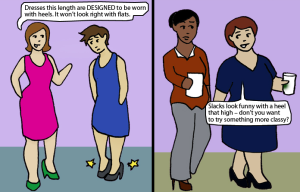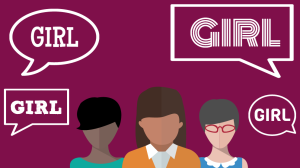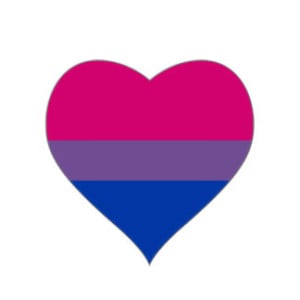I have this weird condition where I can’t shut up.
I do it because I like to talk to people. Sounds pretty cut-and-dry, right?
But the problem is people themselves also exhaust me, so I go into these seemingly odd bursts of energy where I can’t keep quiet – and then do. For the rest of the day, if not the rest of the week.
Believe me, people see that behavior and start to pathologize you, conveniently shunning you for the condition they’ve pressed upon you at the same time (like bipolar disorder or manic depression, as if these living situations themselves were something to feel ashamed about).
For the longest time – like, at least 25 years of my life –I thought something was wrong with me. Turns out I’m just an introvert.
People confuse extroverts and introverts all the time.
But the basic, defining difference between them is this: Extroverts gain their energy from other people, while introverts lose their energy that way. That’s it.
It’s not that introverts don’t enjoy socialization or are shy or aren’t capable of appearing extroverted when their energy is high.
It’s just that, as much as we love people, we’re nonetheless exhausted by them. And we need to be alone in safe, quiet settings to recharge.
And there’s absolutely nothing wrong with that.
But with US American society as it is – where things are expected to be open and available for any amount of poking and scrutiny – being an introvert isn’t exactly easy. This culture has been built for extroverts.
Susan Cain – author of the bestselling book Quiet: The Power of Introverts, says:
In our society, the ideal self is bold, gregarious, and comfortable in the spotlight. We like to think that we value individuality, but mostly we admire the type of individual who’s comfortable ‘putting himself out there.’ Our schools, workplaces, and religious institutions are designed for extroverts. Introverts are to extroverts what American women were to men in the 1950s – second-class citizens with gigantic amounts of untapped talent.”
“According to the latest research, one-third to one-half of us are introverts – that’s one out of every two or three people you know. But you’d never guess that, right? That’s because introverts learn from an early age to act like pretend extroverts,” Cain continues.
And here’s how extroverts reap those ridiculous (and not-so-ridiculous) privileges on a regular basis.
1. You Don’t Forsake Your Basic Needs Just Because Company’s Over
Fellow introverts are already giving a sympathetic groan because every single one of them has been in this situation before.
You’re up in your room (or whatever other area of a living environment is hopefully considered your safe space) and somebody has company over.
It could be your roommate’s friends, your mother’s sister, or even your own acquaintance stopping by for an impromptu hello. It doesn’t matter.
The fact is you’re hungry, but since you’d have to risk making polite conversation with people in order to fill your belly, you ain’t going nowhere.
You pretty much tick away the seconds, pressing your ear up against the door until you’re pretty sure those horrible offenders are gone. And then you wait another 15 minutes just to be sure.
It probably sounds like a silly situation to extroverts, as if we introverts are choosing to suffer unnecessarily.
“Just go the hell downstairs and make a freaking sandwich!” you cry.
But that shows not only the differences between us, but just how energy-sucking interacting with people can be for introverts. When our daily person quota has been filled, hunger is the lesser of two evils.
The same works with using the restroom. Need to go? Tough. You have to hold it until company leaves. We are the reigning champions of our stomachs, bowels, and bladders.
2. You Always Succeed in Your Daily Chores
Confound it all, where do they keep the ketchup around here?
Looking for items at a store can be difficult at the best of the times, but most extroverts seem to have no problem successfully finding what they need in the long run.
Why? Because they’ll actually ask for help.
And introverts? Heh. We’ll walk around for far too long, trying to do everything ourselves because God forbid we hunt down an employee.
Worst-case scenario? We give up and go home, empty-handed and with a couple of extra hours lost from our lives. Oh well. You learn to live a little easier with disappointment and failure, at least.
Extroverts also tend to get to their destinations easier or with less trouble. And can just plain succeed in getting there.
It’s not that introverts have a poorer sense of direction. It’s that we, again, won’t ask for directions. Staying lost is slightly better than having to actually speak to someone.
3. You Don’t Risk Bodily Harm with Those Hairpin Turns
Extroverts seem to walk fairly confidently down the street. And why not? You’re royalty! Everybody loves you! Yaaaaay, you!
But introverts? Yeah. We tend to hug walls and building sides – anything that will give us a little shelter from this noisy, chaotic world.
“Introverts prefer quiet, minimally stimulating environments, while extroverts need higher levels of stimulation to feel their best,” Cain says. “Stimulation comes in all forms – social stimulation, but also lights, noise, and so on.
Introverts even salivate more than extroverts do if you place a drop of lemon juice on their tongues!”
So the long and short of this wall-hugging tactic in order to cut down on stimuli is actually a double-edged sword.
While one side of us is momentarily protected from the human species, it also makes turning corners a risk. Every. Single. Time.
Add in the fact that we tend to walk faster than extroverts – in order to get out of congested spaces that much sooner – and we’re pretty much guaranteed to smack into somebody. Which is an introvert’s nightmare.
But do we stop taking sharp corners, let alone so fast? No. Again, it’s the lesser evil. We’re willing to take the risk. We’ve simply learned to squeeze our eyes tight just before every turn and mentally mutter an epic “No regrets!”
4. You Can Find Work Fast(er)
And decent work at that.
Sick of your old, highly lucrative job? Pfft. Just get a new one, right? It’ll take you, what, a week?
And seriously, good for you. I’m sure you’re a great worker and all that.
But extroverts don’t seem to understand the amount of privilege actually helping them along with their successful job hunts, thereby looking down their noses at introverts when we (frequently) struggle to find work, new or otherwise.
Why’s this?
Because US American jobs are all about networking, and networking is all about being constantly vivacious and memorable to every single person you come across.
These days, aside from the college degree being the new high school diploma, it’s who you know that lands you a good job.
And to know the right people, you need to know how to golf. Be willing to drink socially at a moment’s notice. Hit up all of the local business functions, traveling when need be.
In short: Network, network, network – and don’t you dare let a single person wriggle out of your grasp.
This is hell on introverts. (And note the other forms of privilege here, too, such as fiscal and racial.) We’re stuck aiming for jobs that require little-to-no expertise and, because we don’t socialize in the same ways extroverts do, often miss out on what rare ladder-climbing opportunities exist in these areas.
Also, most entry-level work ironically relates to customer service, meaning we’re around our kryptonite all day.
What’s the cycle that happens?
Spending an entire work day worn out from associating with people (let alone angry, belittling people because, hey, that’s customer service) on top of the usual stressors of a low-paying job, we become exhausted.
We’re not going out golfing or drinking or otherwise dealing with people for the rest of the night.
No, we need to go home and rest both physically and mentally, just to get up the next day and do it all over again.
It’s a vicious cycle.
5. Making Friends Is Easy
Female-read introverts probably get this the most.
While women are expected to be bubbly, smiling, and willing to chat up whoever comes their way, introverts of all sorts just plain don’t want to sometimes.
As a result, we get pegged as sullen, mean, or uppity. Who do we think we are, not talking to people? Pfft. Rude.
Of course, this is more of a worst-case scenario.
The best-case scenario is other people will actually come to you. And once you’ve successfully covered up your knee-jerk reaction to squeak in fear, you can usually lay down your surprise a moment to try and make a friend.
And then, of course, there’s the middle-ground scenario: When you sit next to somebody at, say, school or work and never properly introduce yourself. So you two just never talk. For months. Ah geez, and what was her name again…? Awk.
6. You Don’t Feel So Tired
Everybody gets tired. I grant you that.
But to reiterate, the main difference between an extrovert and an introvert is that extroverts gain their energy from being around people while introverts lose their energy.
In short, we just wear out so much faster than you do with those daily socialization demands.
While you may feel refreshed after a successful day of usual human chores, we tend to get sluggish and worn-out, ready to collapse on the couch for an hour of television or reading before we need to go to bed, get up, and suffer through it all over again. Feeling so consistently tired just plain sucks.
***
In the end, dear introvert, don’t despair. You’re awesome just the way you are.
While you may have been incorrectly pegged as shy or late-blooming, introversion is slowly starting to emerge in mainstream life.
People actually know the word now. And they’re beginning to recognize that no, there’s nothing wrong with you. You have no “condition.”
You’re just an introvert who was born into an extrovert’s world.
And to all of you nice extroverts: You’re awesome, too. Everything about you is great. But please, just let us sit in the corner every so often and not take offense.
I swear we like you. We just don’t always want to be around you.
[do_widget id=”text-101″]
James St. James is a Contributing Writer for Everyday Feminism. He isn’t particularly fond of his name, but he has to admit it makes him easier to remember. When he’s not busy scaring cis gender people with his trans gender agenda, he likes to play SEGA and eat candy.
Search our 3000+ articles!
Read our articles about:
Our online racial justice training
Used by hundreds of universities, non-profits, and businesses.
Click to learn more





















